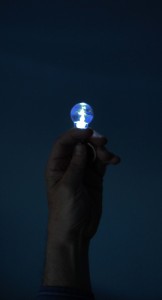I was wrong
It’s difficult to process news of the atrocity at the Boston Marathon, and the unspeakable malice behind it. Even worse is the fact that horrible stories come along so frequently now.
This one hit almost simultaneously with the news media’s reluctant acknowledgement of the ongoing trial of the abortionist.
Meanwhile, the country is still unbalanced by the most recent school shooting.
What’s next? Missiles from North Korea?
When I was young, everyone knew war with the Soviets could erupt at any time, and yet even that possibility (because it was only a possibility) pales next to the certainty that there will be further localized but grisly developments like the above.
Normal people recoil from these things. At least, I do. I cannot bear to read about the practices in Gosnell’s “clinic,” and I cannot imagine how people who worked there could sleep at night.
On the other hand, when I write about something, I know it’s good to be specific—to provide details, invoke the senses, to augment the reader’s experience. But nobody wants a heightened experience of that stuff. I sure don’t.
And yet accumulating events like these demand a response. I cannot hope to prevent the next expression of evil in this world, but I can examine my thinking and assumptions to see how they fit into the big picture—to evaluate whether I’m even a tiny part of the problem. Because it’s bountifully evident that the society of which I’m a part is not well. And reading about Gosnell reminds me of the position I argued during the med school admission interview described in chapter 4 of What About the Boy?.
In that long-ago interview, my questioners asked what I as a doctor would do with a hypothetical frightened teenage girl who came to me asking for an abortion. That wasn’t something I wanted to talk about. Assuming I became a physician, I did not expect to provide abortions. But when pressed I did finally say that someone determined to get one should not be denied.
For many years, I’ve believed that my failure to get into the medical school was due to that answer or at least to the way in which I expressed myself. But I say in the book that I still hold the same basic view. Because if doctors don’t provide something that a patient believes is necessary, doctors shouldn’t be surprised when patients then turn to less reliable resources—and suffer for doing so. (That story is included in the memoir to illustrate what was going on when my son’s doctors likewise declined to help him.)
My position was based on various unspoken assumptions, e.g., that, as President Clinton later put it, elective abortions should be safe, legal, and rare (rare, I guess, as amputations are rare) and that, as pro-choice people have claimed, the thing we’re talking about is just “a clump of cells.” Somehow, I never gave much thought to what was involved, nor did I imagine that the issue would lead in the direction it has.
For the first time since its publication, I feel an impulse to go back and alter something in my book. I don’t want it to convey the wrong message.
The girl asking for an abortion most definitely needs help. No doctor has any business shaming her or giving the impression that she’s being turned away. That does not mean that an abortion is the help she needs. I’ve finally reached the conclusion that my response in the interview merited the rejection I subsequently received.
Yes, abortion is legal. But it’s a stretch to call it safe, and it’s most certainly not rare. Not even for late-term abortions. In most cases, at least, it’s far outside the scope of what caregivers or humane society should countenance. I was wrong have evolved.
UPDATE: One effect of the increasing polarization in society is clarity. On a number of issues, including abortion, I previously saw merits on both sides and wanted to call myself a moderate. However, as the debate grows more heated, parties begin to show what they really mean. I find that helpful.

